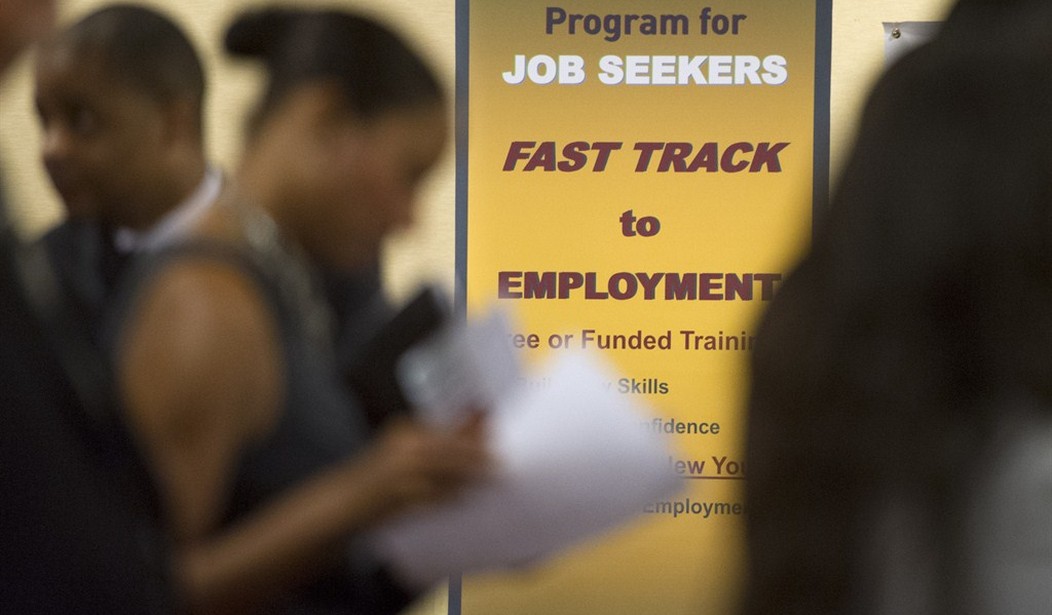Tumultuous economy? What tumultuous economy?
If you’re in one of America’s wealth creation epicenters – Seattle, Boston, Dallas or D.C. as examples – you might not be feeling the brunt of a brutal labor market. But most of us are keenly aware of the lack of job creation.
There seems to be no end to Americans’ acceptance of destructive, job-killing government policies these days, so hoping for a quick course-correction in Washington is probably not realistic. But here are a couple of things we can all start doing – now – to help ensure a brighter future for ourselves and our families.
Understand the basic economic dynamics of your profession or industry: It is sad to realize how many highly-trained and well educated professionals nonetheless don’t understand cash flow at their place of employment. Ask them “how do you get paid?” and you’re likely to hear “through automatic deposit” or “I get a check every 2 weeks.”
If you earn a living at, say, a local restaurant, then the cash flow equation is pretty obvious. Your restaurant will probably need some specific number of cash-paying customers to spend some specific amount of money every month in order for the restaurant owner to keep the doors open.
But with other occupations the equation isn’t so obvious. Years ago my local public school district made a big push to get voters to approve higher property taxes, supposedly so local schools would have more money. The campaign slogan was “vote YES for education,” but the implication was that if voters rejected higher taxes then teachers would have to be laid-off.
During the campaign I was visited by a teacher at my door saying “I’m worried about losing my job; will vote yes for education?” In response I asked a very simple money question:“why is it that the school district needs more money when student enrollment has been declining for fifteen years?”
Recommended
We talked for a few brief minutes. The lady had absolutely no clue about the taxpayer funded personal cars,and hotel, air travel, and dining expense accounts being paid to the big-salary “administrators” at the school district office – money that never went to teachers or classrooms -and worse yet, she seemingly had absolutely no interest or inclination to learn about them. “All I know is that I love teaching children, and I want to keep my job” she said as she stormed off. The threats about losing her job were probably disingenuous and un-warranted, but without taking the time to understand the economic dynamics of her work, she lived in fear – and became a pawn in other people’s selfish politics.
And then there are the medical doctors among us. There was a day when the American Medical Association officially opposed Medicare, the federal healthcare program for retirees and the disabled, because physicians feared “too much government meddling” in their practices. But soon after the program launched, the AMA quickly fell in love with Medicare because it created continuous revenue streams in to doctor’s offices.
But after two and a half decades or so of financial bliss, things began to change. The federal government began telling physicians, in essence, “we don’t care what your ‘billing rate’ is for any particular service – we’ll pay you what we think your service is worth.” As a result many physicians try to limit the number of Medicare patients they see today, because dealing with Medicare is financially a “loser.”
Having still not learned their lesson, the AMA then began an “on again – off again” flirtation with President Barack Obama. In 2009 the group tacitly opposed Obamacare; then in 2010 they said they were “open to it;” and in 2012 – in the final few weeks of the presidential re-election cycle – they officially opposed it again. Without any clear understanding of the economic dynamics of their profession, today physicians are losing their jobs in some regions of the country because the Obamacare law drives up the operational costs of hospitals and clinics, making physicians’ salaries unmanageable.
If you provide services directly to the individual or organization that pays you, the cash flow quandary is easier to navigate. If, on the other hand, your income is dependent on the whims of a third party – an insurance company or government agency that “reimburses” you, or a government bureaucracy that is willing to use you for political manipulation (think “federal government shutdown” last month) – then the basic economic dynamics of your work might not be so obvious. Ignore these matters at your own peril.
Know what you’ve got – and what you haven’t got – for the marketplace: Recently I was consulting a woman who launched a successful career as an Attorney in her 20’s, got married and eventually chose to stay at home to raise children, and who is now trying to re-enter the job market. But guess what? The “job market” for Attorney’s has changed since the 1990’s. “I’m competing against all these youngster law school grad’s who are willing to work for peanuts” she told me.
I made the observation that her law degree came from a top-ranking and highly accredited school, and that the accreditation could probably help enable her to “practice law” in multiple states. She was insisting on a full-time “job” at somebody else’s firm, and hadn’t even considered the possibility of providing legal and consulting services nationwide out of her own “virtual” office.
Similarly I was contacted by another mom who was re-entering the workforce wondering if she’d ever find another job as an accountant. “Do your accounting credentials allow you to work in other states?” I asked.“I have no idea” she responded, admitting that she had never entertained the question before.
Bad government policy and our geographic location can both hinder our ability work. But sometimes our own lack of knowledge and unwillingness to “think out of the box” is our worst enemy. Knowing how the dollars flow – and knowing what you’ve got to offer – is a step in the right direction.

























Join the conversation as a VIP Member